We know that poetry and art inspire music – and we thought we’d look at the question from the other way around. How has music inspired art, in this case, architecture. We’ve found some unusual buildings in the shapes of instruments – not as a theoretical construct but as, say a massive guitar on the skyline or perhaps a violin or a violin and a piano.
Huainan’s Violin and Piano Building was constructed in 2007 and combines a glass violin (the fingerboard hides the elevator) and a grand piano with a lifted lid to provide a canopy for the roof terrace. It sits on 3 legs like a piano. It does have a music function, with both concert halls and rehearsal studios.
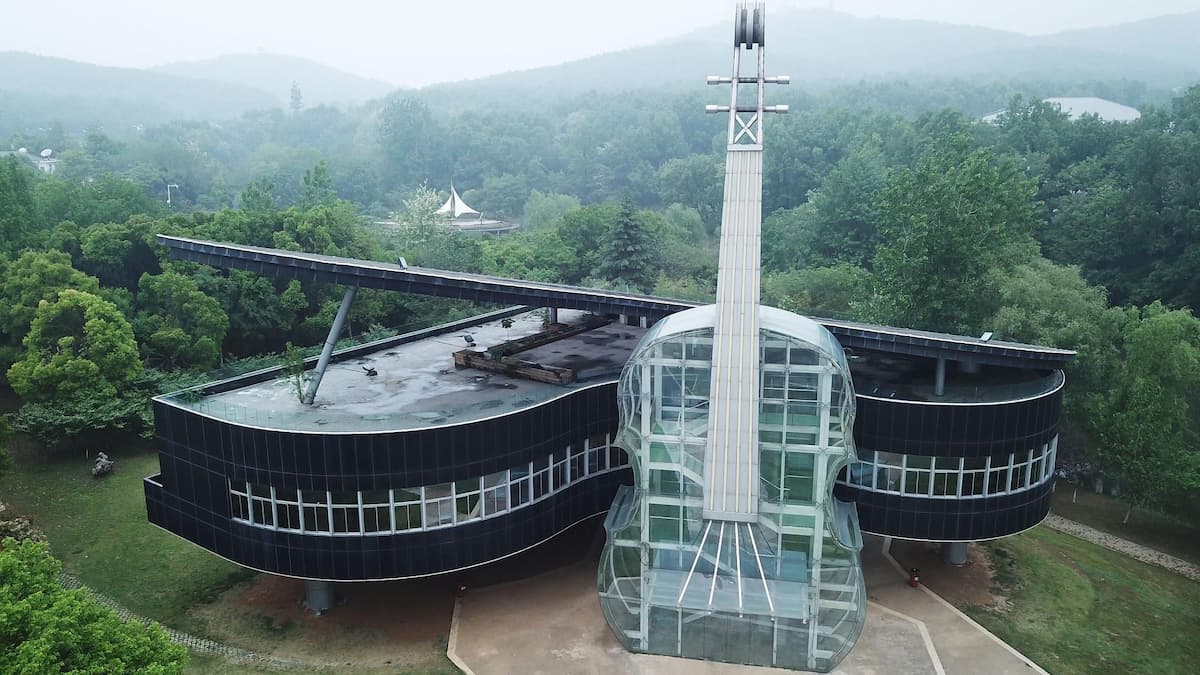
Piano and Violin Building
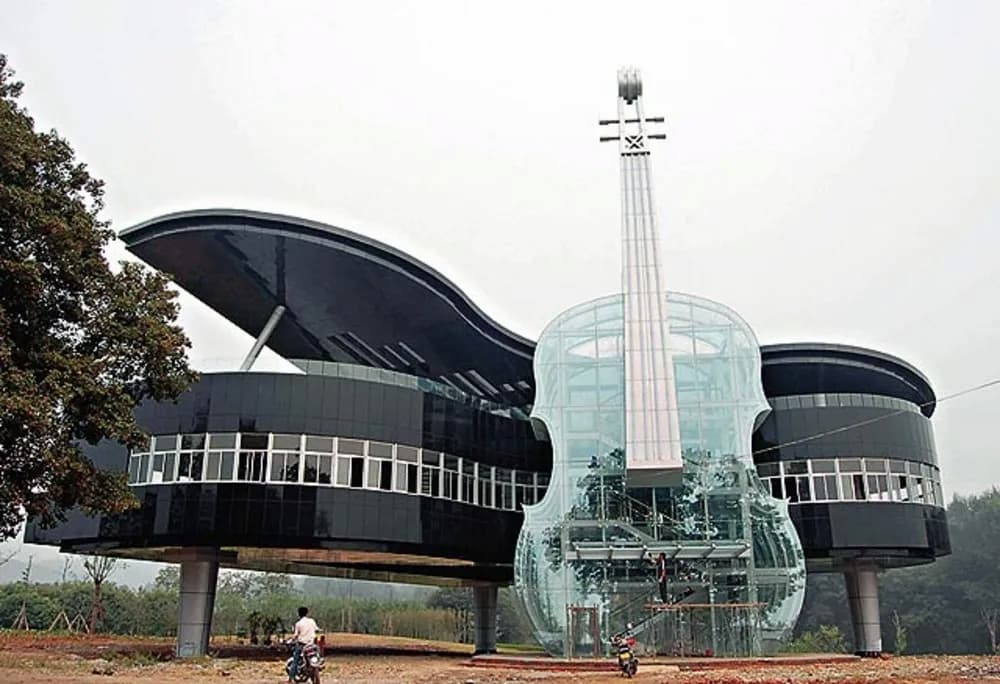
Piano and violin building from ground level
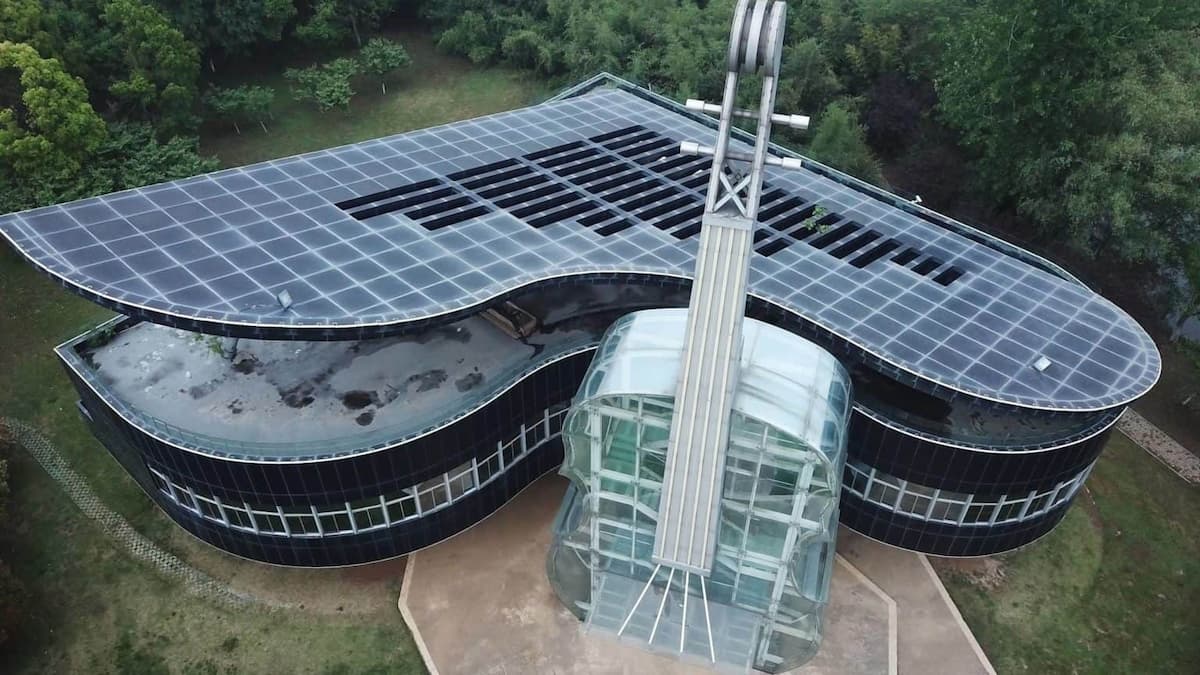
Piano and Violin Building from above
Hollywood, Florida, is home to the Seminole Hard Rock Hotel and Casino. The Guitar Hotel section takes the form of an electric guitar, but one that happens to have over 600 rooms in it.
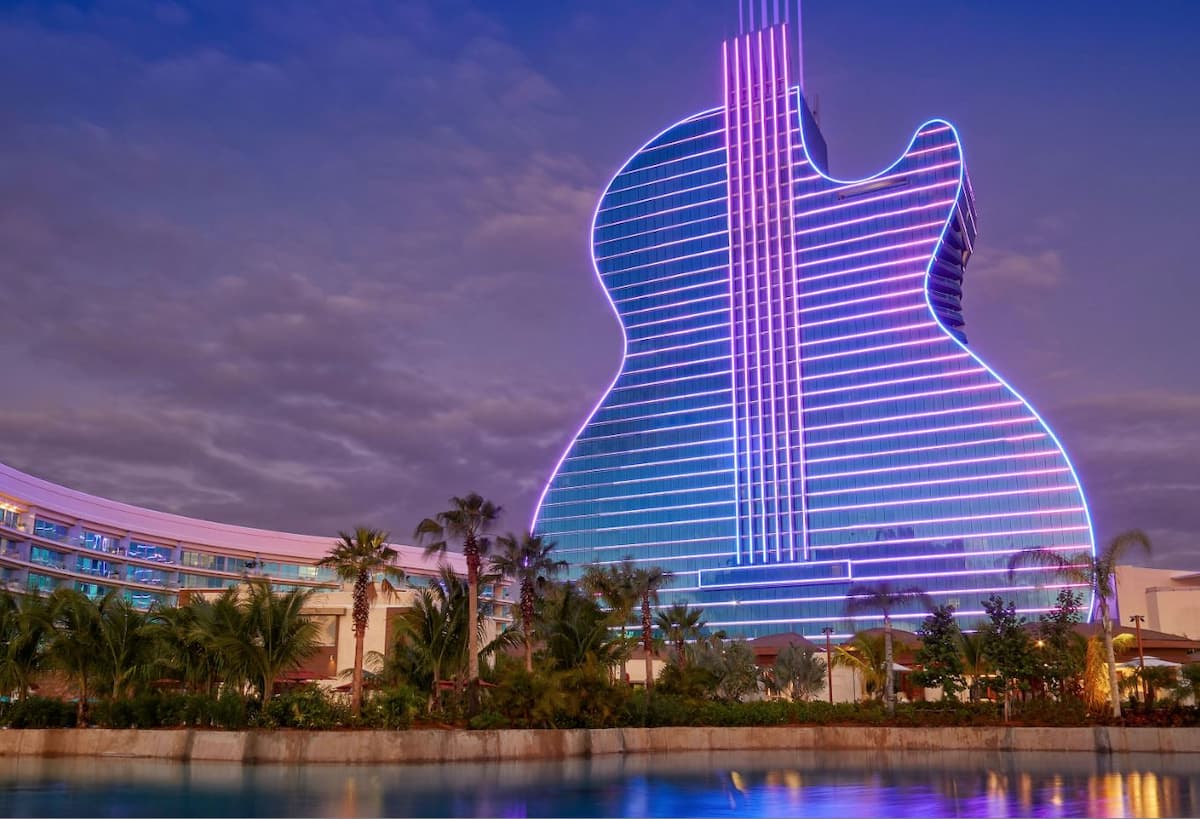
The Guitar Hotel
In Bologna, Italy, on the grounds of the former Lamborghini factory, is the House of Music of Pieve di Cento. From above it looks like a set of drums, from the ground it looks like cylin, heavily influenced by the traditional instrument-making material of wood. The building consists of 9 small music laboratories linked by a central piazza for meeting and sharing by the musicians.
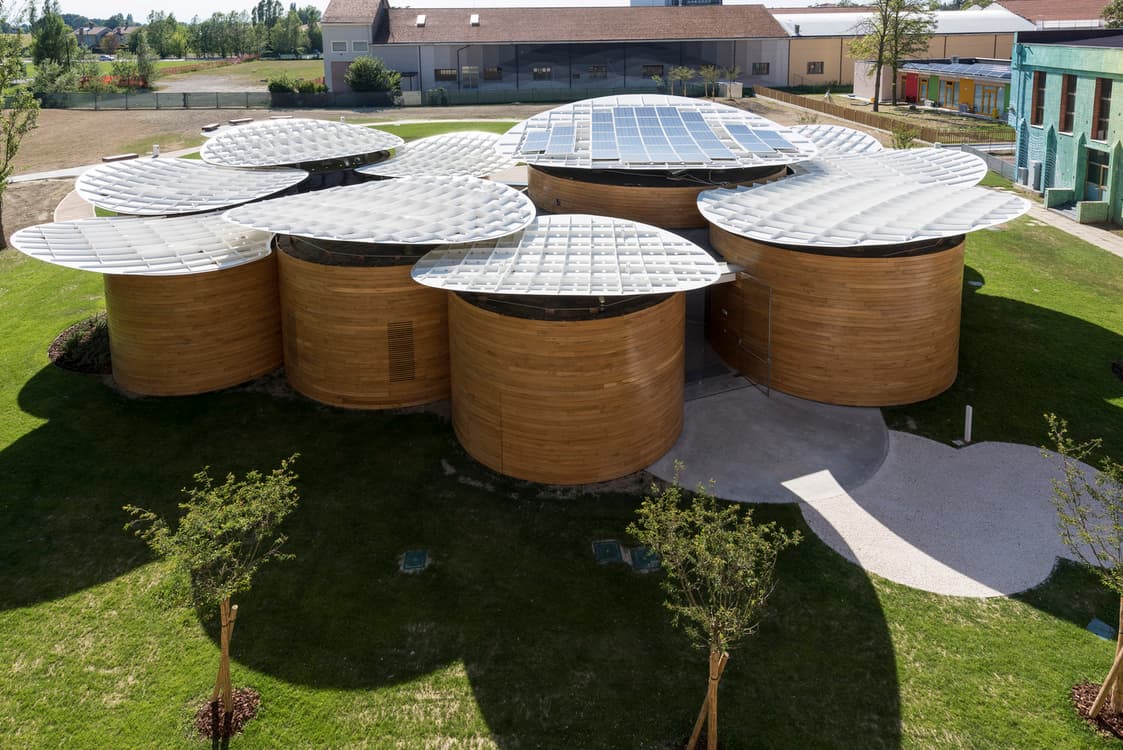
The House of Music of Pieve di Cento
A bridge in the design of a harp takes advantage of cable-stay bridge construction to create a bridge over the River Hoofdvaart: The Harp-Nieuw Viennep Bridge in Nieuw-Vennep, Netherlands.
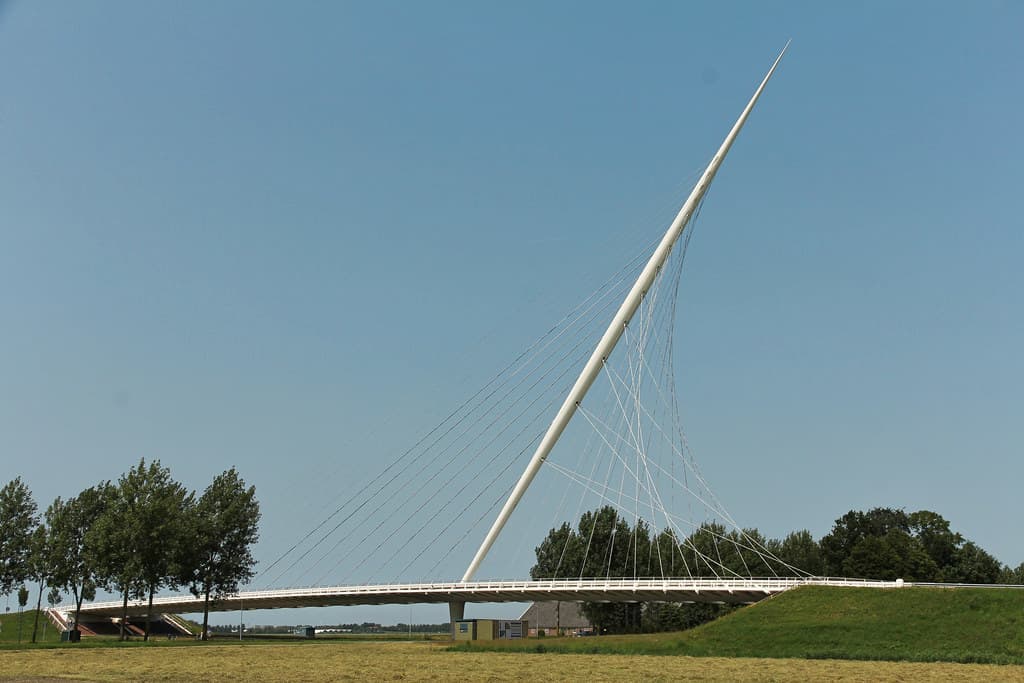
The Harp-Nieuw Viennep Bridge
From the street, the Violin Church in Foshan City (Guangdong province) looks like your simple 38 m (125 Foot) high violin. Construction started in 2013 and the building was dedicated in January 2016.
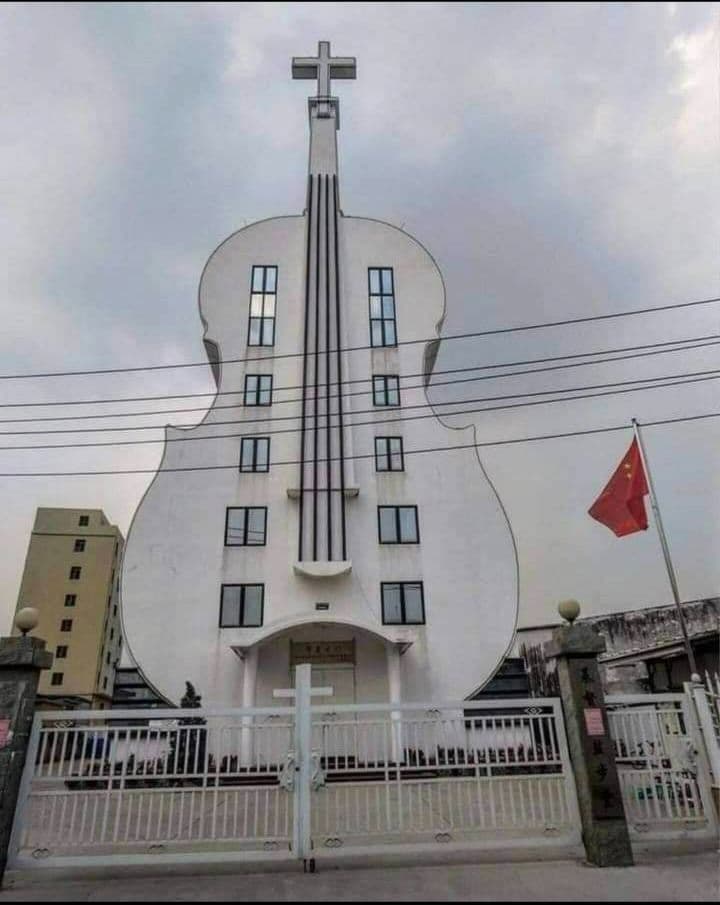
Violin Church
In this drawing of the church, we can see that the violin is just the front – the building extends back to a building that looks like a rounded piano with the lit lifted.
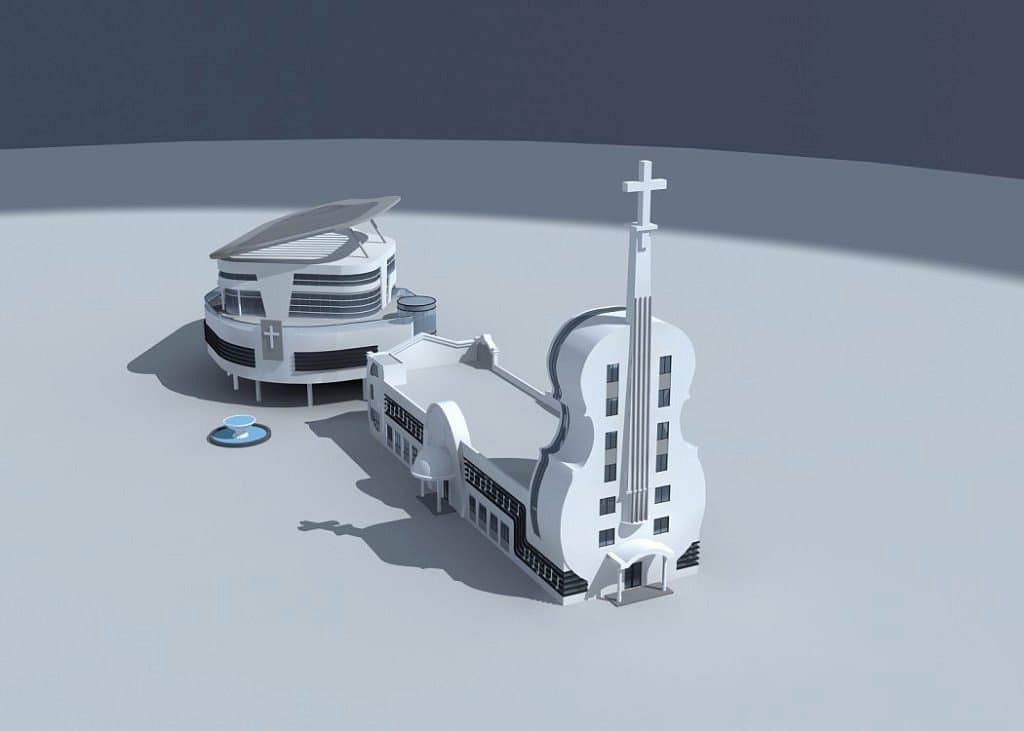
Violin Church- drawing
Moving from buildings into sound sculptures that use nature, we have a number of ‘sea organs’.
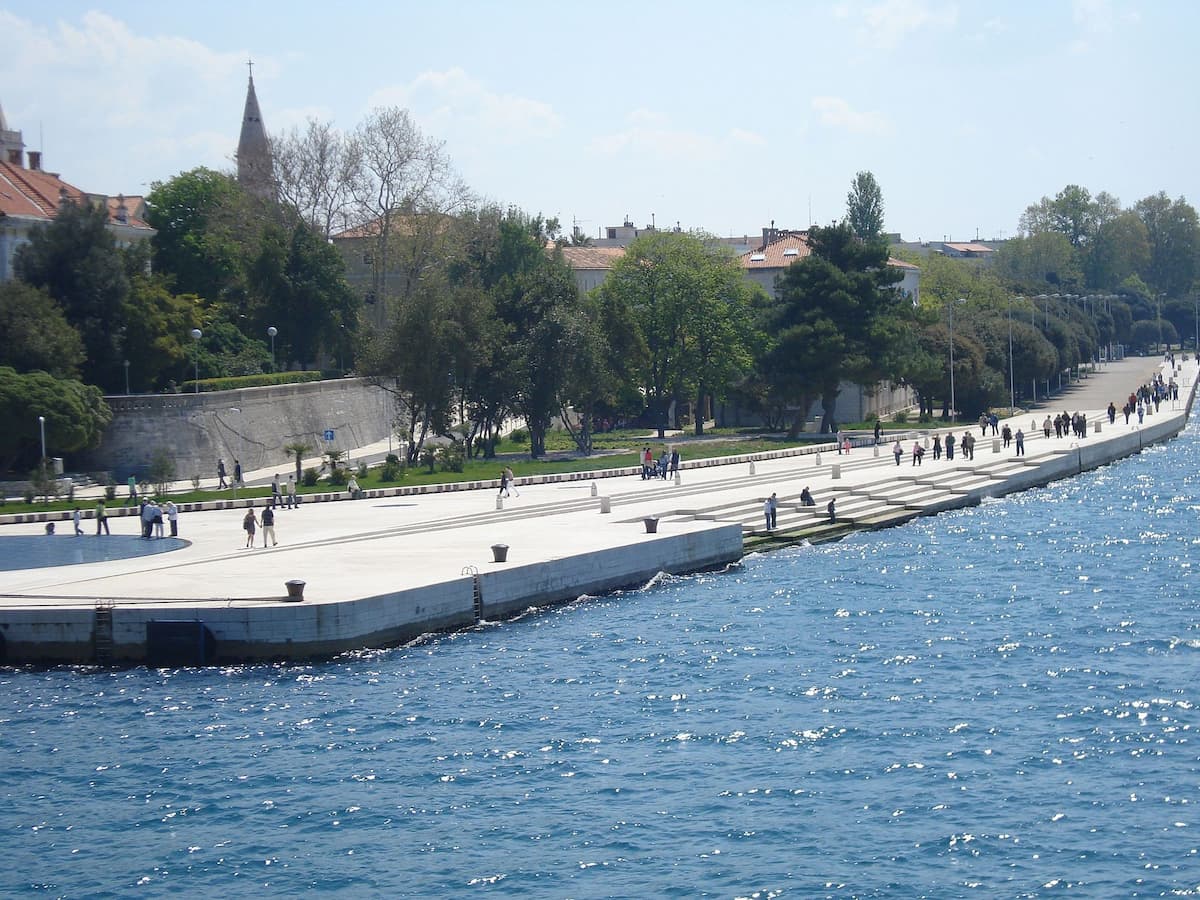
Sea Organ in Zadar, Croatia
The Sea Organ in Zadar, Croatia, uses the waves to drive air through a set of plastic tubs under a set of steps – holes at the top of the stops emit sounds – seven steps mean seven pitches.
Waterorgan Zadar, Croatia
San Francisco also has a wave organ, completed in 1986. Part of the Exploratorium Museum, the Wave Organ is located on a jetty on San Francisco Bay that was created out of material from a demolished cemetery and so is filled with columns and other marble decorations.
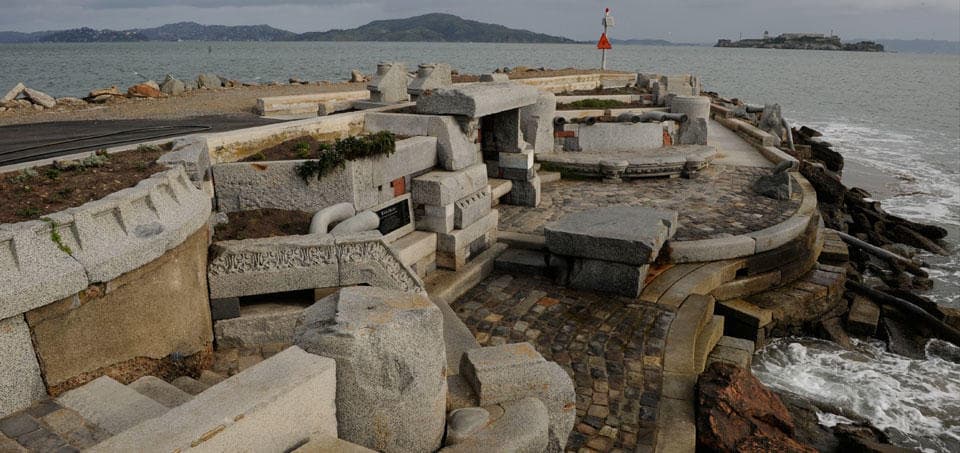
San Francisco Wave Organ
The instrument has 25 pipes placed at different levels. ‘Sound is created by the impact of waves against the pipe ends and the subsequent movement of the water in and out of the pipes’. The sounds are kept deliberately low so that the listener has to stop to listen and add in the environmental sounds at the same time.
Get to know The Wave Organ in San Francisco Bay
Another wave organ was the High Tide Organ, located in Blackpool, England. This instrument, standing 15m (39 feet) tall, played at high tide. Eight pipes at the sea-side pushed air to 18 connected organ pipes. The instrument had a fundamental tone of B flat. Built in 2002, it was removed in December 2021 – due to the sea air, the metal instrument corroded because of lack of maintenance.
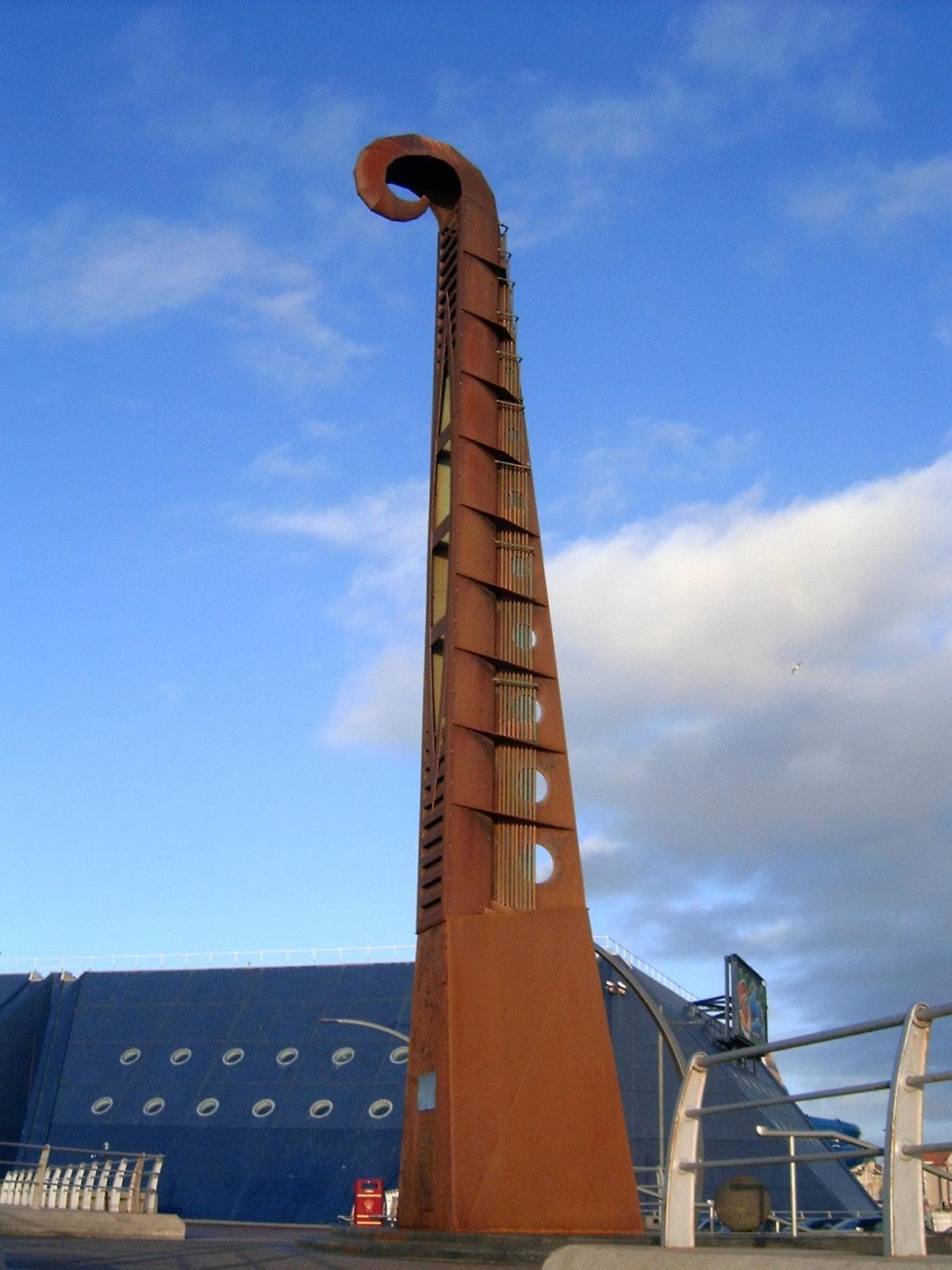
Blackpool High Tide Organ
Instruments as inspiration and tidal actions that cause sound results outdoors are just two aspects of music and architecture. We’ve already explored roads that sing, where else is music creating a new auditory world?
For more of the best in classical music, sign up to our E-Newsletter




There is a huge fiddler at Sydney cruise port in Nova Scotia.